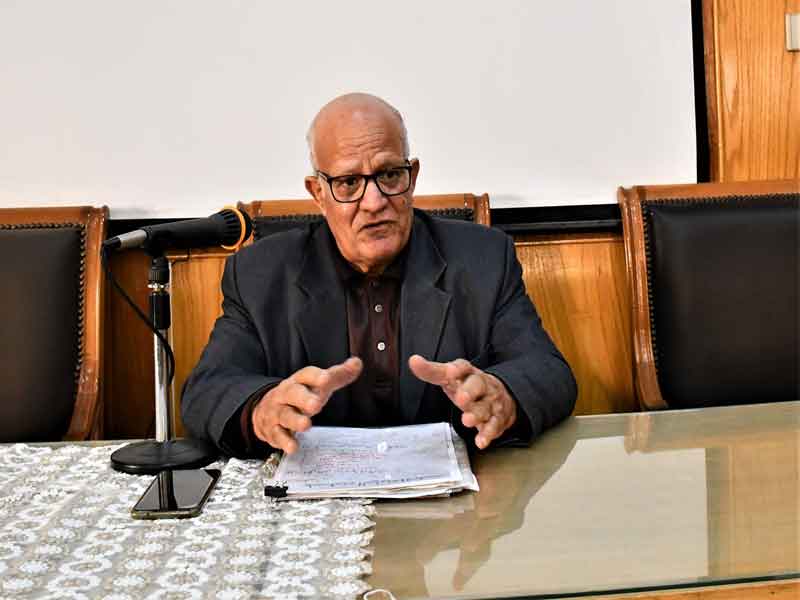The first training course in rooftop organic farming at the Faculty of Science
The Community Service and Environmental Development Sector at the Faculty of Science at Ain Shams University organized the first training course in organic agriculture on rooftops, under the patronage of Prof. Dr. Mahmoud El-Metini, President of the University, Prof. Dr. Hesham Tamraz, Vice President for Community Service and Environmental Development, and Prof. Dr. Mohamed Ragaa Al-Sotohi, Dean of the Faculty, and under the supervision of Prof. Dr. Amani Suleiman Khaled, Vice Dean for Community Service and Environmental Development Affairs, in coordination with Prof. Dr. Magdy Tawfik Khalil, Emeritus Professor in the Department of Zoology.
Prof. Dr. Ahmed Attia Ahmed, advisor to the Scientific Society for Home Agriculture in Mansoura, attended the training course
Prof. Dr. Amani Suleiman, Vice Dean for Community Service and Environmental Development, emphasized in her speech at the session that the goal of the project is to cultivate anywhere and exploit the possible spaces on the roofs with the aim of reducing pollution by increasing the cultivated areas, purifying the atmosphere, reducing the proportion of carbon dioxide and producing healthy and safe food without polluted manure.
 |
 |
 |
||
The plants grown on rooftops are also free of chemicals, which helps maintain the health of the human being, the main consumer of these crops.
Prof. Dr. Ahmed Attia, the course lecturer, reviewed the definition of clean agriculture, the tools used in it, and the steps for preparing the agricultural environment, compost, compost and biofertilizers.
He explained the disadvantages of the traditional farming method, whereby harmful pesticides are used, which leave an impact on the soil and cause many pests that may harm the environment and human health, in addition to the high costs of chemical fertilizers, which may cause great damage to the soil, reducing its productivity.
Prof. Dr. Ahmed Attia also presented the concept of soil pH and alkalinity, how to measure it, how to sterilize organic manure, and the damages of soil salinity, which may lead to the death of crops.
 |
 |
He pointed out the ways to take care of ornamental plants and irrigate them correctly, which are distinguished by their aesthetic appearance despite the high prices.
He reviewed the dates of planting different vegetables, which can be planted on rooftops and in the areas to be exploited, such as tomatoes, eggplant, cucumbers, dwarf fruit trees, and leafy and aromatic vegetables.
Dr. Ahmed Attia addressed the problem of using plastic bags, which is one of the most serious problems that threaten the environment in Egypt, due to the difficulties of decomposing them, pointing to several research that mentioned how to use some bacteria extracted from the intestines of animals to help analyze and recycle these bags and introduce them to other more useful industries.


.svg)




